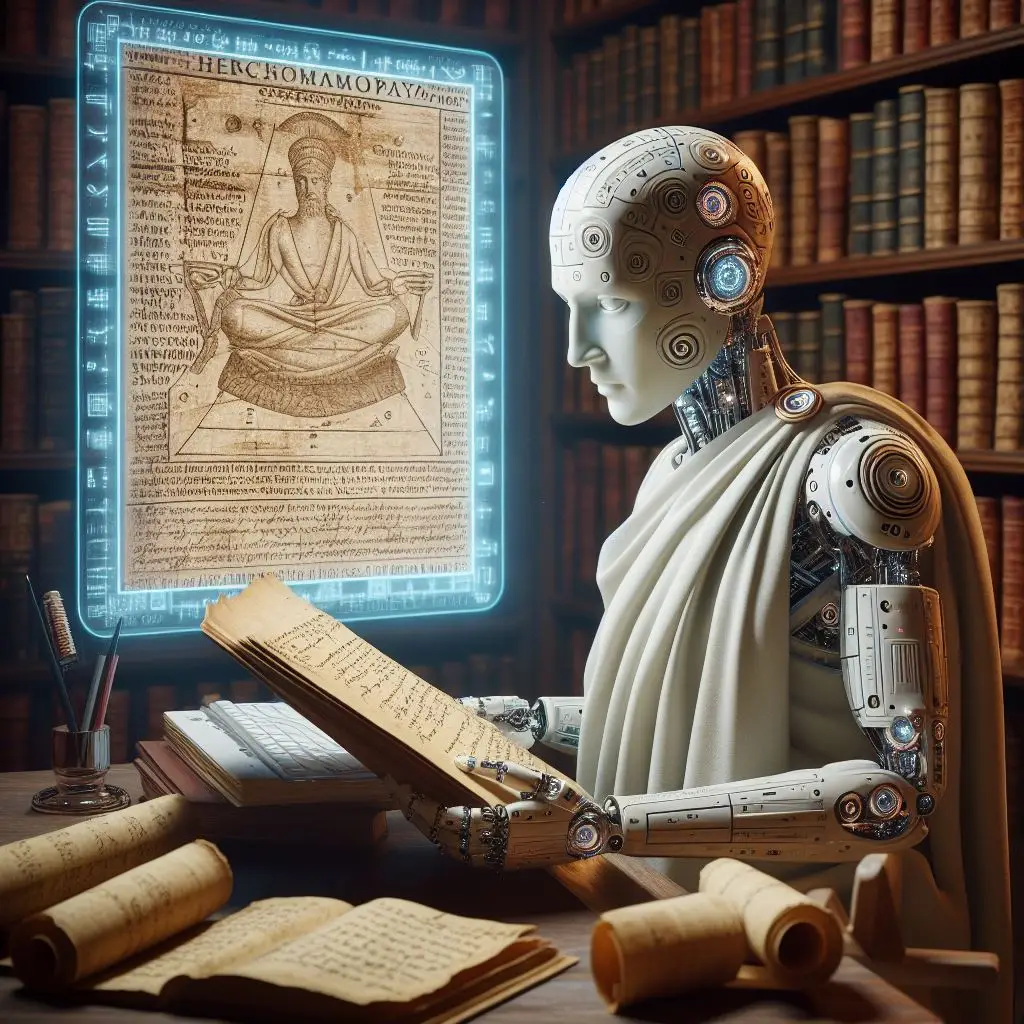In the heart of Italy lies a treasure trove of history, buried beneath the ashes of a catastrophic volcanic eruption. Mount Vesuvius, infamous for its destruction of Pompeii and Herculaneum in 79 A.D., has long held secrets waiting to be unearthed. Recently, a groundbreaking endeavor has shed light on one of history's most enigmatic puzzles: the Herculaneum papyri.
Imagine a charred, 2,000-year-old scroll, its delicate pages preserved but obscured by the ravages of time. For centuries, these scrolls from Herculaneum's vast Roman library remained an enigma, their contents tantalizingly out of reach. However, thanks to the power of artificial intelligence (AI), this once-inscrutable text is now revealing its secrets.
At the forefront of this remarkable feat is the Vesuvius Challenge, a $1 million contest sponsored by former GitHub CEO Nat Friedman. The challenge was clear: teams were tasked with extracting Greek text from scans of the damaged scrolls, known as the 'Herculaneum papyri'. This ambitious endeavor aimed to harness the potential of AI to decipher ancient texts that had eluded scholars for centuries.
The significance of the Herculaneum papyri cannot be overstated. Excavated in the 18th century from the ruins of Herculaneum, these scrolls provide a unique window into the intellectual life of the ancient world. However, their charred and fragile state presented a formidable obstacle to traditional methods of analysis. Despite the best efforts of scholars, the texts remained largely unreadable—until now.

Enter AI, with its unparalleled ability to discern patterns and extract meaning from complex data sets. The winning software, developed by visionary teams, utilized AI algorithms to detect subtle patterns missed by human observers. Through meticulous analysis of the scanned images, the software unveiled over 2,000 readable letters, unlocking a treasure trove of knowledge preserved for millennia.
But why does this matter? Beyond the thrill of discovery lies a deeper significance. The successful decipherment of the Herculaneum papyri underscores the transformative potential of AI in historical research. By transcending the limitations of human perception, AI offers a new frontier in the exploration of our collective past.
Indeed, the implications are profound. The newfound ability to decipher texts and artifacts previously lost to time could revolutionize our understanding of history. From unraveling ancient languages to reconstructing lost narratives, AI has the power to rewrite the annals of human civilization.
Moreover, the Vesuvius Challenge serves as a poignant reminder of the enduring relevance of the past. In an era dominated by technological innovation, it is all too easy to overlook the wisdom of antiquity. Yet, as we gaze upon the words of long-forgotten scribes, we are reminded of the timeless beauty and complexity of human endeavor.
In conclusion, the Vesuvius Challenge stands as a testament to the ingenuity of humanity—and the limitless potential of AI. By bridging the gap between past and present, this groundbreaking endeavor opens new horizons of discovery and understanding. As we peer into the depths of history, guided by the light of AI, we embark on a journey of exploration and enlightenment that knows no bounds.









Add a Comment: